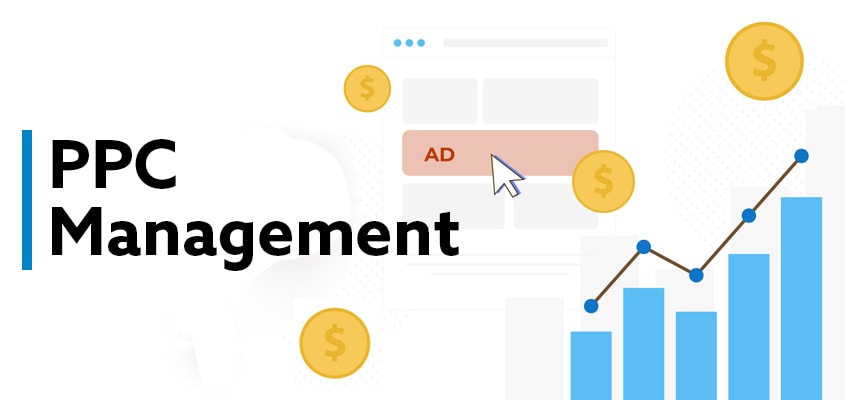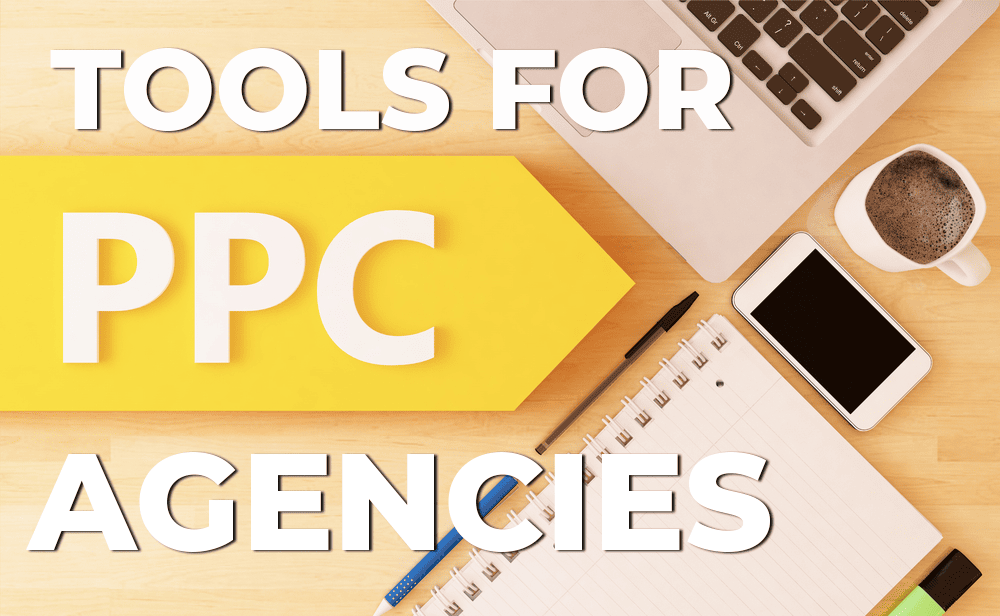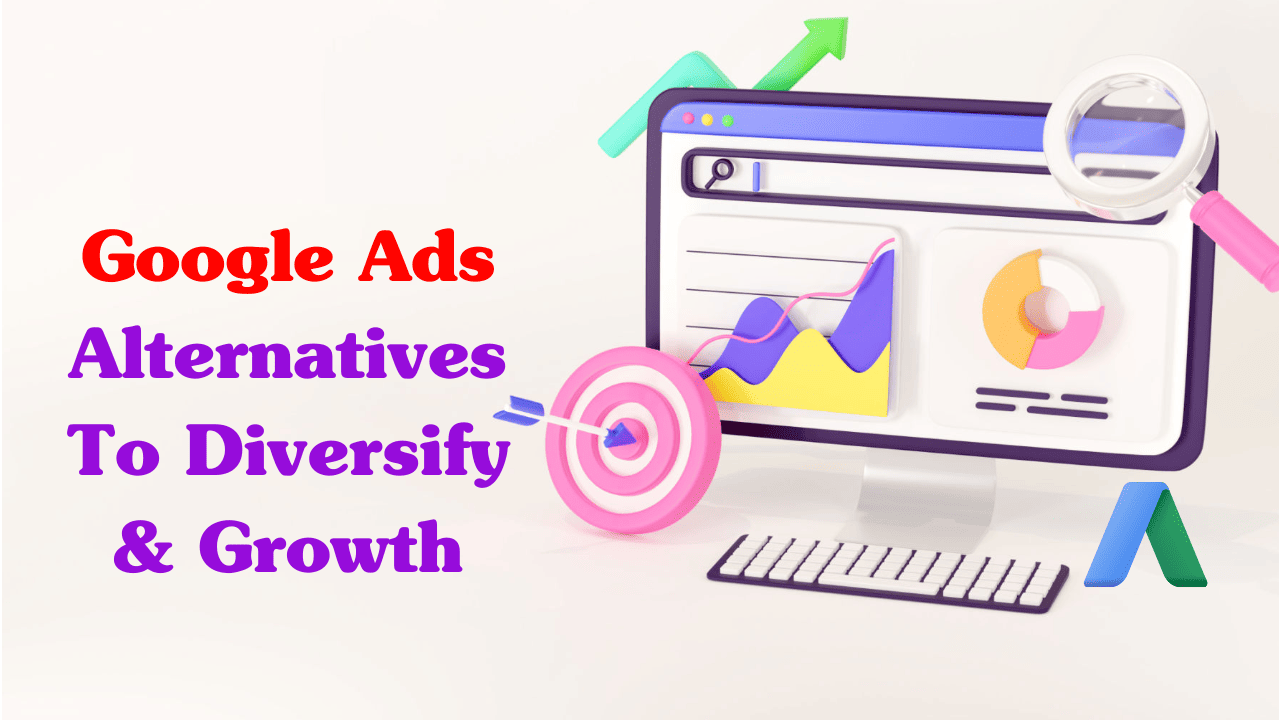Pay-per-click (PPC) advertising is perhaps one of the swiftest methods for discovering and converting new customers. More important than merely allocating funds to PPC is directing those resources into proficient PPC management.
A PPC management strategy comprises numerous elements. Whether you’re a novice marketer venturing into the realm of PPC or a brand contemplating an investment in PPC management, continue reading to gain insights into PPC management.

What is PPC Management?
PPC management is the process of managing and optimizing the paid advertising campaigns that run on search engines and other websites. This is the professional handling or management of various elements of paid advertising campaigns, including keyword selection, ad copywriting, bid management, and budgeting.
The ultimate goal of PPC management is to maximize return on investment through driving targeted traffic to a website and making sure such traffic drives in desired actions, such as sales, lead generation, or visibility. PPC management involves the formulation, implementation, and improvement of the PPC strategy that a brand adopts.
Within the industry of PPC management, there exist various essential responsibilities and tasks aimed at achieving productive and economical campaign outcomes.
Notable facets of PPC management encompass:
- Conducting keyword research.
- Exploring the target audience.
- Performing competitive analysis.
- Selecting suitable advertising channels.
- Crafting compelling advertisements.
- Vigilantly supervising and refining the budget.
- Enhancing landing pages for optimum performance.
- Providing detailed performance reports.
- Continuously testing and optimizing campaigns.
Keyword Research
The primary objective of conducting keyword research for PPC campaigns is to pinpoint pertinent and high-converting keywords that align with the company’s product or service offerings.
Usually, PPC managers utilize a range of tools to assist in the process of keyword research. These tools may encompass:
- Google Keyword Planner.
- Semrush.
- Google Trends.
- Moz and others.
Following the completion of keyword research, the subsequent task involves categorizing them into concise themes for use in campaigns.
You can also read: How To Optimize Your PPC Performance
Audience Research
This research method can further enhance the effectiveness of Google Ads campaigns. When engaging in audience research, aim to focus on important characteristics of the primary audience persona, including:
- Gender.
- Location.
- Age range.
- Digital channels they frequent.
- Online shopping and browsing behaviour.
- And additional attributes.
In Google Ads, demographic factors such as those mentioned above can be integrated into PPC campaigns, leading to a more precise targeting approach. The outcome will improve the quality of users and increase engagement in PPC campaigns.
Competitive Analysis
Monitoring key competitors is an essential element of PPC management. Competitive analysis shouldn’t be a one-time activity but a routine practice. PPC marketers can use third-party tools, such as those mentioned in keyword research.
When examining competitor insights, it’s important to focus on the following:
- The keywords they are bidding on.
- The SEO keywords they rank for.
- The ad copies they utilize.
- The advertising channels they are active on.
- The budget range they allocate to Google Search.
Keeping abreast of how competitors approach PPC management can offer several advantages. It can help in recognizing any similarities in marketing strategies or revealing any gaps in your existing strategy that may have gone unnoticed.
Note: The objective isn’t to mimic your competitors but to remain well-informed about developments in your core market.
Ad Creation
When crafting ads, it is paramount to maintain a user-centric approach. Ensure that the ad copy for each ad group is fine-tuned to align with the targeted keywords.
Consider integrating the target keywords into the headlines.
In the description lines, adopt a blend of elements to experiment with, in order to gauge what resonates most effectively with users. These elements may include:
- Highlighting the benefits of the product or service.
- Addressing the problems the product or service can resolve.
- Incorporating social proof or brand authority.
- Creating a sense of urgency.
Remember to leverage the available ad assets, such as sitelinks, images, business logos, price promotions, and more!
You can also read: Must Have Essential Skills for Every PPC Specialist
Identifying Target Channels
After all the preliminary keyword, audience, and competitor research, the next phase in PPC management involves proper advertising channels.
If your chosen keywords have substantial volume or interest in the subject matter, beginning with Google and Microsoft Search makes a lot of sense. In order to further the reach for your brand, try looking at Google Video ads on YouTube.
For example, if your target audience is really into social media, you should come up with an ad strategy for social media.
Landing Page Optimization
Optimizing your campaigns is a never-ending process that doesn’t end at the point of user engagement. You invest so much in the creation and maintenance of your campaigns, only to realize the conversions you had been expecting are not coming in the way you hoped they would.
That’s where the often overlooked aspect of PPC management-landing page optimization-comes in. You’ll need to make sure the pages to which users are landing from your ads are relevant, user-friendly, and finely tuned to maximize conversion rates.
The given landing page needs to fulfill the specific needs of the users-to precisely match their search intent. The whole purchase experience has to be frictionless, including easy and smooth navigation, and fast page loading.
Budget Monitoring & Optimization
One of the most important activities that are included in PPC management is budget monitoring and optimization. To begin with, it is relevant to note that budget monitoring is not just about observing whether the campaigns are well within budget or have exceeded.
Each campaign and advertising channel will have different daily budgets, bidding strategies, objectives, and KPIs. Also, each campaign should be kept under observation-performance-wise-not only to focus on budgeting but also to do efficient budget reallocations.
If a few campaigns are delivering strong results but are hindered by budget constraints, it’s important to allocate full funding to those campaigns while reducing the budget for less effective ones.
You can also read: How to Track and Analyze PPC Results
Performance Reporting
Assessing PPC performance is a fundamental practice right from the outset. This practice aids in pinpointing successful strategies, identifying areas that require improvement, and determining the course of action to take.
Tools like Google Looker Studio offer a wide array of pre-designed dashboard templates. Once your data sources are linked to these templates, you can tailor reports to suit your specific needs, ensuring the most favourable impact.
In the industry of PPC management, measuring performance reporting should be aligned with the company’s overarching objectives. These objectives might encompass:
- Cost per acquisition.
- Conversion rate.
- Return on investment.
- Revenue.
It’s essential to merge data from PPC campaigns with the final purchase outcomes, as these objectives serve as guiding metrics to assess what is performing admirably.
Ongoing Testing and Campaign Optimization
Once your campaigns are established and launched, it might be tempting to simply allow the systems to run and learn. Nevertheless, proactive PPC management necessitates a proactive approach, involving a consistent exploration of campaign data and conducting early and ongoing tests on various elements.
This testing can encompass items like:
- Ad copy.
- Landing pages.
- Bid strategies.
- Targeted audiences.
It’s important to keep in mind not to overburden your testing process. Ideally, focusing on one element at a time is the most effective approach to discerning the factors that are truly driving results.
Routine campaign assessments and optimizations should additionally encompass the following:
- Evaluating the performance of bid strategies.
- Reviewing campaign budgets and their constraints.
- Analyzing keyword performance.
- Conducting a thorough review of search term reports.
- Identifying negative keywords for inclusion.
- And many other aspects relevant to your specific campaigns.
What Are the Benefits of Using PPC Management?
If you are investing in PPC advertising, some form of PPC management is essential. This can be accomplished in a few different ways:
- Internal PPC management.
- Enlisting the services of a PPC management agency.
Before delving into the process of selecting the most suitable option, let’s explore some of the key advantages of PPC management.
You can also read: Effective PPC Strategy For Tech Companies
PPC Management is Cost-Effective
Seems paradoxical, doesn’t it? How can paying for PPC management be a cost-saving measure when you’re already investing in advertising?
In the grand scheme of things, a meticulously executed PPC management strategy results in savings through the efficient supervision and optimization of campaigns.
If your campaigns were launched and left to their own devices, you’d probably be depleting your budget rapidly. Effective PPC management not only conserves financial resources but can also generate revenue.
PPC Management is Time Saving
Time savings from PPC management manifest in various dimensions:
Engaging a PPC management professional frees you to concentrate on other initiatives or expansion opportunities.
Experimenting with hypotheses via PPC campaigns often delivers results more swiftly than any other avenue, facilitating quicker decision-making.
These are merely a couple of illustrations of time-saving aspects.
PPC Management Facilitates the Growth of Other Marketing Channels
It’s widely acknowledged that PPC advertising investments can facilitate rapid brand growth. Nonetheless, PPC performance doesn’t exist in isolation.
In reality, PPC can be a very valuable source of insights for other channels, SEO included. For instance, PPC may point to long-tail, low-volume, yet high-converting searches. If your brand is in a highly competitive industry, dedicating some of that SEO effort to those niches may pay off regarding business growth in general.
Moreover, the investment in PPC advertising could yield better brand visibility over time and thus lower reliance on paying for media.
How to Optimize PPC Management for Maximum Benefits
As already identified, there are two prevalent methods of managing PPC: in-house management or outsourcing the task to a PPC management agency.
Let’s delve into the main differences between these two approaches to help you identify which option best suits your business.
In-House PPC Management
With in-house PPC management, you are hiring a person who works directly for your company, generally as a salaried employee. The biggest cost with in-house PPC management is often maintaining the right talent.
Of course, depending on your needs, you can hire someone for just PPC management or for a combination of marketing tasks.
In contrast, when an in-house position is considered, some factors are very important; these include utilisation of time. For instances where this person will be taking over other jobs relating to marketing, a speculated amount of time that can or should be devoted to Pay-Per-Click has to be availed. If so, consider whether the time devoted to it will affect the output or quality in other jobs.
PPC Management Agency
Outsourcing a professional full-time PPC management company is a big deal. The associated costs can also be quite high and largely dependent on the preferred pricing models of each agency. Some agencies practice a system of a monthly retainer rate, while others charge a percentage of ad spend.
A PPC agency typically runs most, if not all, areas of your PPC advertising. However, it is of paramount importance to retain an in-house point of contact that works directly with the chosen agency in pursuit of openness in communication and aligned goals.
How to Choose the Best Approach to Managing PPC
Both in-house management and agency management have their pros and cons.
The choice will always depend on the particular needs of every company. There are, however, certain important issues that allow you to get the most from your pay-per-click management:
Proven Experience: Do proper research concerning one’s background before making the hiring decision. Check if there are customer testimonials and published case studies and the industries they have served. Make sure their knowledge in the industry fits the needs of your company, or you might need to orient an inexperienced candidate to this, which will lead to a delay in performance.
Platform Proficiency: Finding someone (or a team) well-versed in the intricacies of PPC platforms is paramount. An experienced resource is more likely to understand the intricacies of your business and deliver effective results. Assess their proficiency in various platforms such as Google and Microsoft Ads, as well as social advertising platforms like LinkedIn and Facebook.
You can also read: Is It Required to Hire an Agency to Handle Pay-Per-Click Tasks?
Strategic Aptitude and Execution: Your PPC management resources should not only understand how to use the platforms but also create their strategies in line with what fits for appropriate campaigns. For example, if you have budget constraints and are focusing on lower-funnel users at the start, recommending a test of video ads immediately would raise a red flag. More importantly, the resource should have an understanding of advanced campaign settings from the outset.
Transparency and Communication: Clear and respectful communication is essential in any professional partnership. It’s crucial that your resource is transparent from the outset regarding strategies, costs, and results. Additionally, their responsiveness should align with your specific needs.
Each one of these elements, matched and weighed carefully, will position you for success with the selected PPC management resource. When the resource experience matches your goals and creates success for your PPC campaigns, in turn, your management of PPC will be better.
Conclusion
There is quite a bit of strategy, as well as hands-on execution, involved in PPC management. Preliminary research to configuration, enhancement of campaigns-PPC management plays a very vital role in any campaign, be it short-term or long-term success.
Choosing the appropriate PPC management resource necessitates a dedicated commitment of time and effort, but it should be regarded as an investment in the overarching growth of the company.
This comprehensive examination of PPC management can serve as a valuable roadmap to initiate and sustain success in your PPC campaigns.
Would you like to read more about “What Is PPC Management” related articles? If so, we invite you to take a look at our other tech topics before you leave!
![]()













